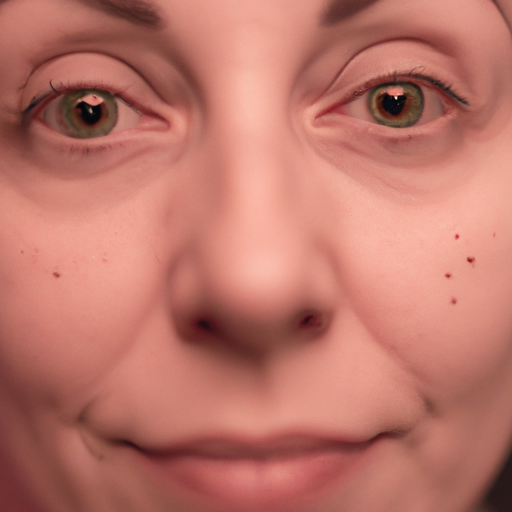As a medical professional, I have seen firsthand the impact that skin health can have on a person’s overall well-being and self-esteem. One of the most common skin concerns that patients approach me with is dull, lifeless skin caused by the accumulation of dead skin cells on the face. This article aims to unveil the radiance hidden beneath that layer of dead skin cells by discussing effective strategies for their elimination.
The skin is the largest organ in the human body and plays a crucial role in protecting us from external elements. It is continuously renewing itself, with new cells being created at the lower layer (dermis) and old, dead cells sloughing off from the surface (epidermis). However, sometimes these dead cells don’t shed completely, leading to a buildup that can cause a dull, dry appearance and clog pores, leading to acne and other skin issues.
Exfoliation is the key to removing these dead skin cells. This process can be done physically or chemically. Physical exfoliation involves using a scrub or a brush to manually remove the dead cells. This method can be effective but should be done gently to avoid damaging the skin. Over-exfoliation can lead to redness, irritation, and even breakouts.
Chemical exfoliation, on the other hand, uses acids or enzymes to dissolve the bonds between the dead cells so they can be easily rinsed away. Alpha hydroxy acids (AHAs) like glycolic acid and beta hydroxy acids (BHAs) like salicylic acid are commonly used chemical exfoliants. They not only remove dead skin cells but also stimulate the production of new ones, promoting a brighter and smoother complexion.
While exfoliation is crucial, it’s not the only strategy for eliminating dead skin cells. A healthy lifestyle also plays a significant role in maintaining radiant skin. Hydration is essential; drinking plenty of water helps keep your skin cells plump and healthy, making it easier for them to shed naturally. A balanced diet rich in vitamins, minerals, and antioxidants can also boost your skin’s health and its ability to renew itself.
Moreover, protecting your skin from the sun is vital. Overexposure to the sun can cause premature skin aging and damage, slowing down the cell renewal process. Always wear a broad-spectrum sunscreen with an SPF of at least 30, even on cloudy days.
Lastly, regular visits to a dermatologist or a skincare professional can be beneficial. They can provide personalized advice based on your skin type and concerns, and offer treatments like microdermabrasion or chemical peels that can effectively remove dead skin cells and rejuvenate your complexion.
In conclusion, unveiling the radiance of your skin is a combination of regular exfoliation, a healthy lifestyle, sun protection, and professional skincare advice. It’s important to remember that everyone’s skin is unique, and what works for one person may not work for another. Therefore, it’s crucial to listen to your skin and give it the care it needs to glow from within.




